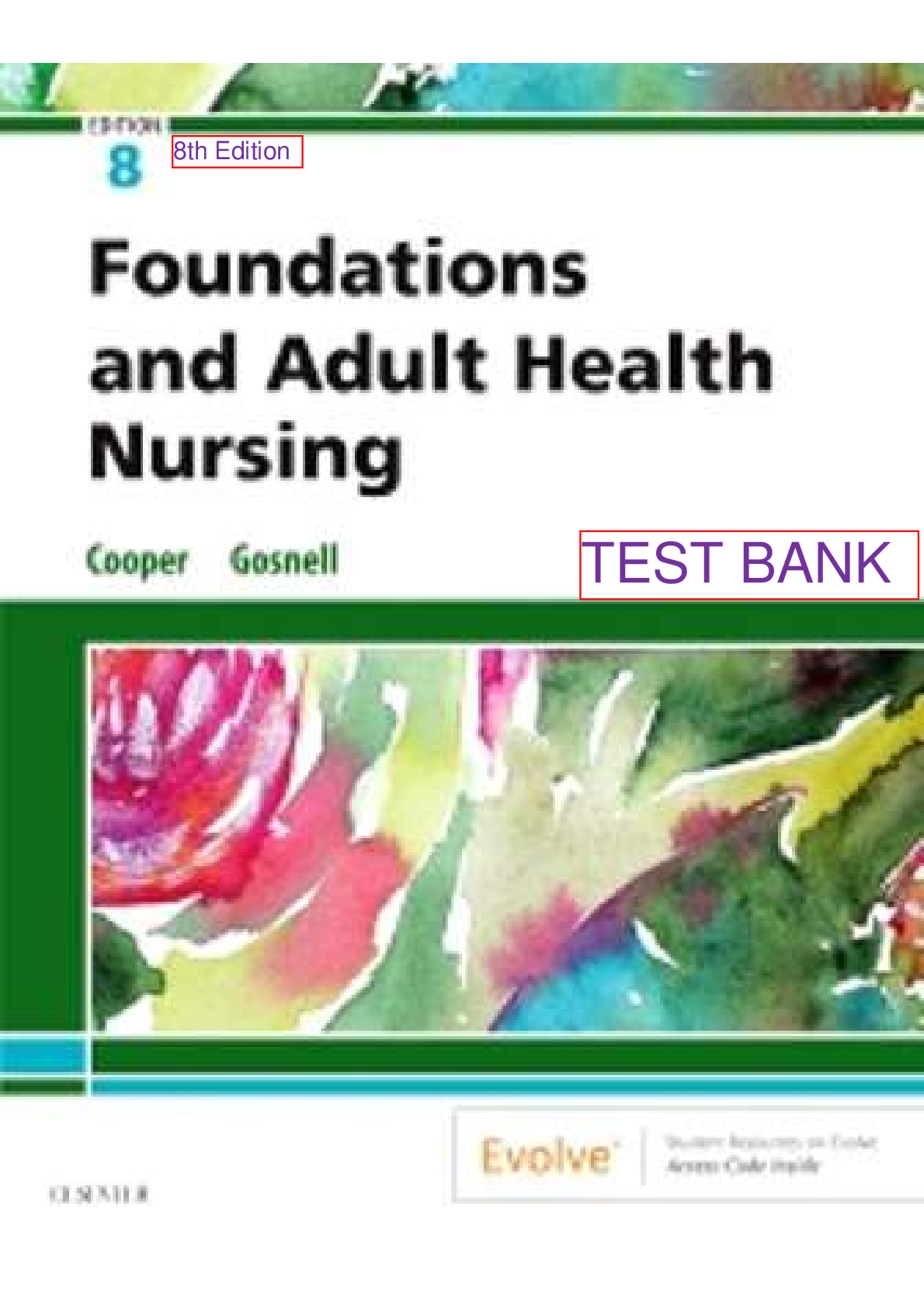ATI - Adult Med-Surg Critical Care > EXAM > NSG 430 Adult Health Nursing II NSG 430 Exam 1, 2 & 3 A+ 2025 (All)
NSG 430 Adult Health Nursing II NSG 430 Exam 1, 2 & 3 A+ 2025
Document Content and Description Below
NSG 430 Adult Health Nursing II NSG 430 Exam 1, 2 & 3 NSG 430 Exam 1 1. A patient who has been diagnosed with inoperable lung cancer and has a poor prognosis plans a trip across the country to set... tle some issues with family members. The nurse recognizes that the patient is manifesting which psychosocial response? a. Protesting the unfairness of death b. Anxiety about unfinished business c. Fear of having lived a meaningless life d. Restlessness about the uncertain prognosis Answer> Anxiety about unfinished busy- ness The patient's statement indicates that there is some unfinished family business that the patient would like to address before dying. There is no indication that the patient is protesting the prognosis, feels uncertain about the prognosis, or fears that life has been meaning- less. 2. A patient with terminal cancer is being admitted to a family-centered nipa- tent hospice. The patient's spouse visits daily and cheerfully talk with the patient about wedding anniversary plans for the next year. When the nurse asks about any concerns, the spouse says, I’m busy at work, but otherwise things are fine. Which issue would the nurse identify as a concern in working with the patient's spouse? a. Fear b. Anxiety c. Hopelessness d. Difficulty coping Answer> Difficulty coping The spouse's behavior and statements indicate the absence of anticipatory grieving, which may lead to impaired adjustment as the patient progresses toward death. The spouse does not appear to feel fearful, hopeless, or anxious 3. As the nurse admits a patient in end-stage renal disease to the hospital, the patient tells the nurse, if my heart or breathing stop, I do not want to be resuscitated. Which action should the nurse take first? a. Place a Do Not Resuscitate (DNR) notation in the patient's care plan. b. Invite the patient to add a notarized advance directive in the health record. c. Advise the patient to designate a person to make future health care deco- sons. d. Ask if the decision has been discussed with the patient's health care provider. Answer> Ask if the decision has been discussed with the patient's health care provider. A health care provider's order should be written describing the actions that the nurses should take if the patient requires CPR, but the primary right to decide belongs to the patient or family. The nurse should document the patient's request but does not have the authority to place the DNR order in the care plan until it is prescribed by the HCP. A notarized advance directive may be completed but is not needed to establish the patient's wishes. The patient may need a durable power of attorney for health care (or the equivalent), but this does not address the patient's current concern with possible resuscitation. 4. The nurse is caring for an unresponsive terminally ill patient who has 20-second periods of apnea followed by periods of deep and rapid breathing. Which action would the nurse take? a. Suction the patient's mouth. [Show More]
Last updated: 1 day ago
Preview 5 out of 305 pages

Loading document previews ...
Buy this document to get the full access instantly
Instant Download Access after purchase
Buy NowInstant download
We Accept:

Reviews( 0 )
$9.50
Can't find what you want? Try our AI powered Search
Document information
Connected school, study & course
About the document
Uploaded On
Jul 27, 2025
Number of pages
305
Written in
Additional information
This document has been written for:
Uploaded
Jul 27, 2025
Downloads
0
Views
2
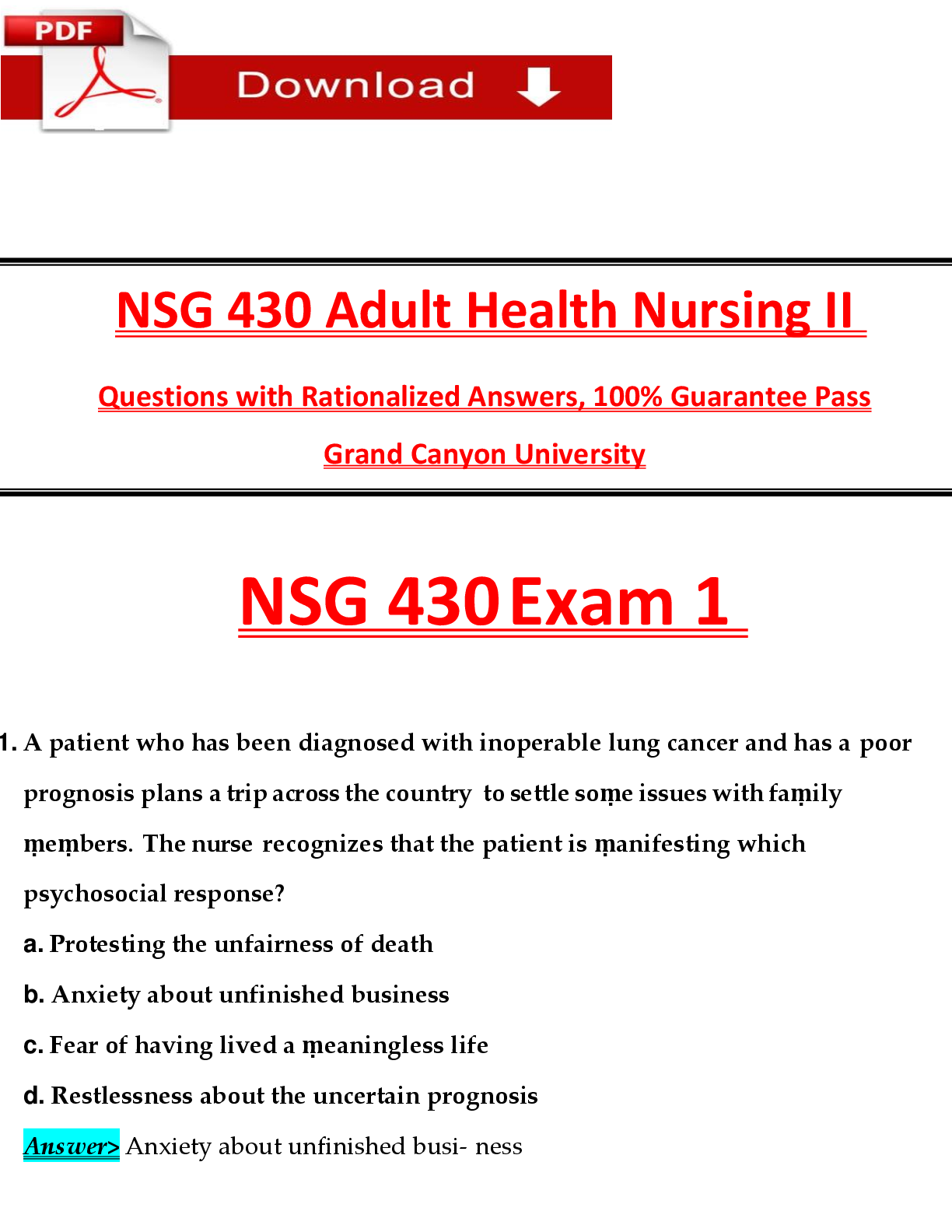

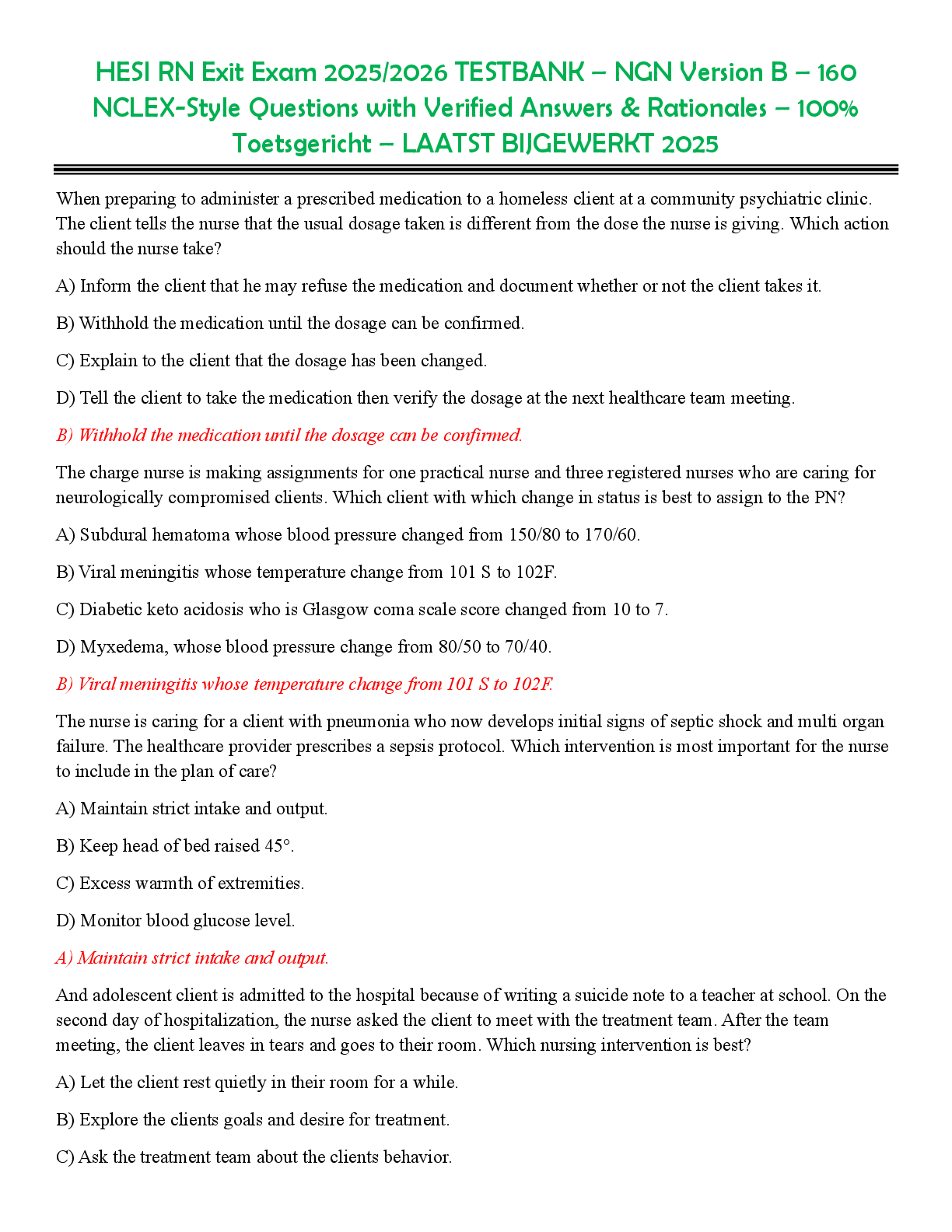

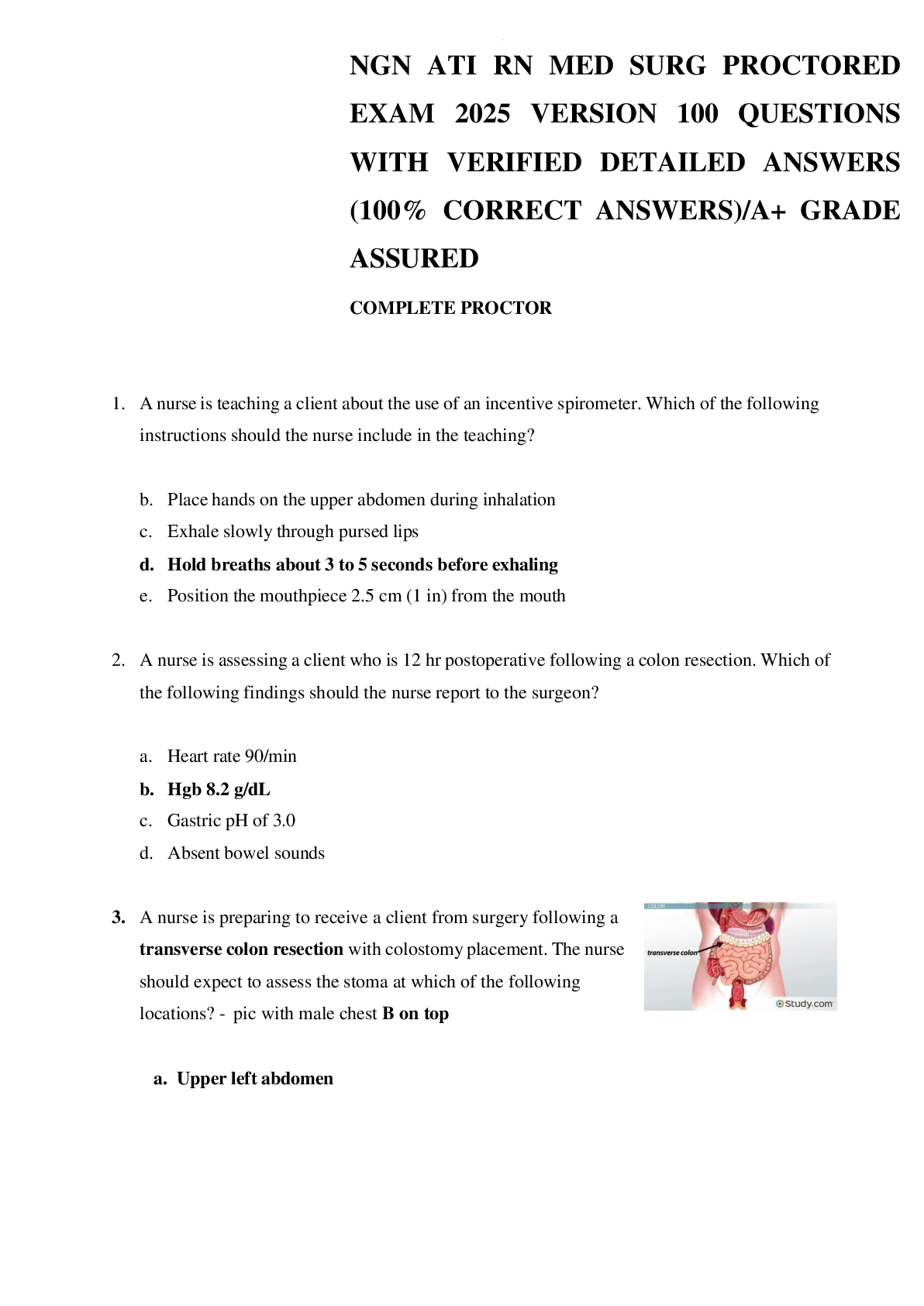
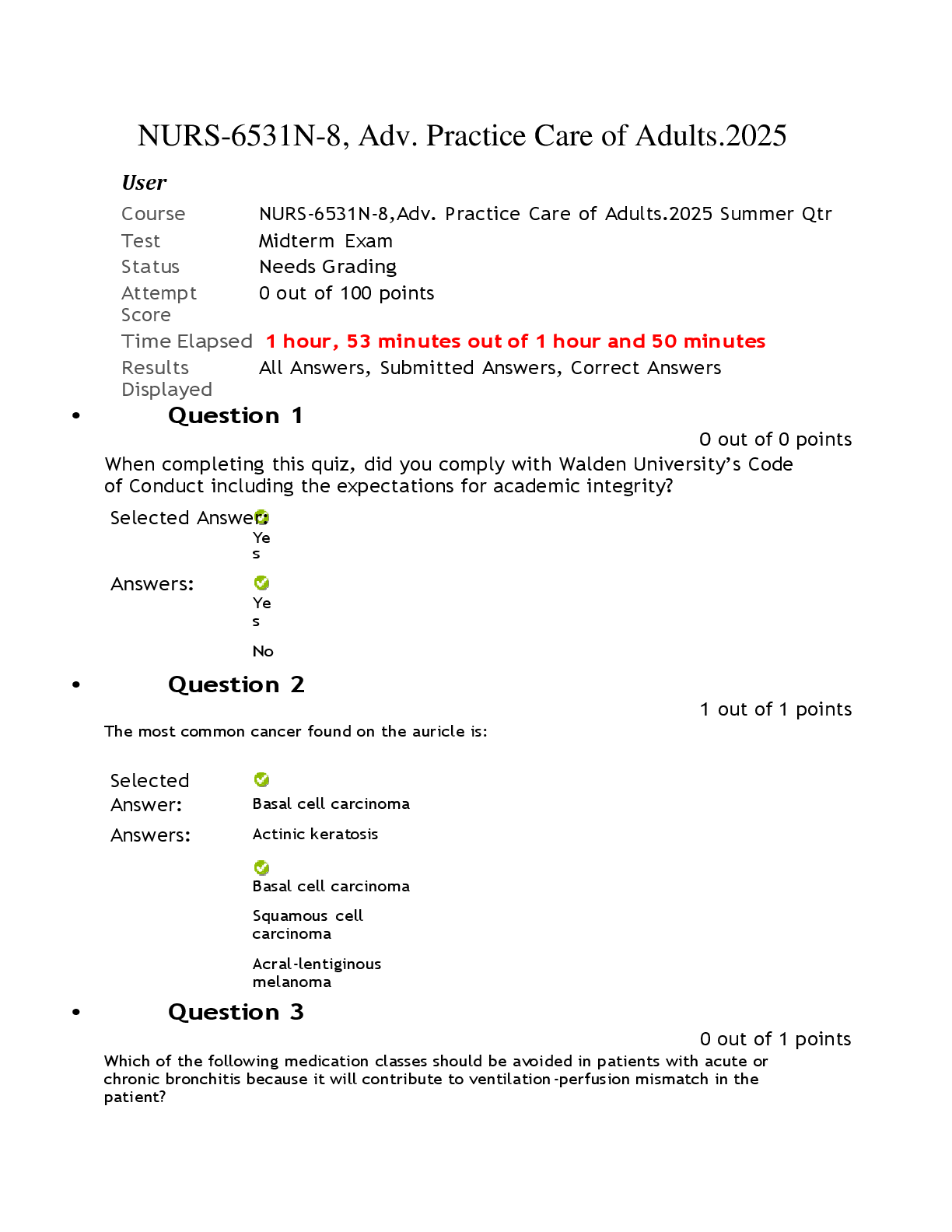
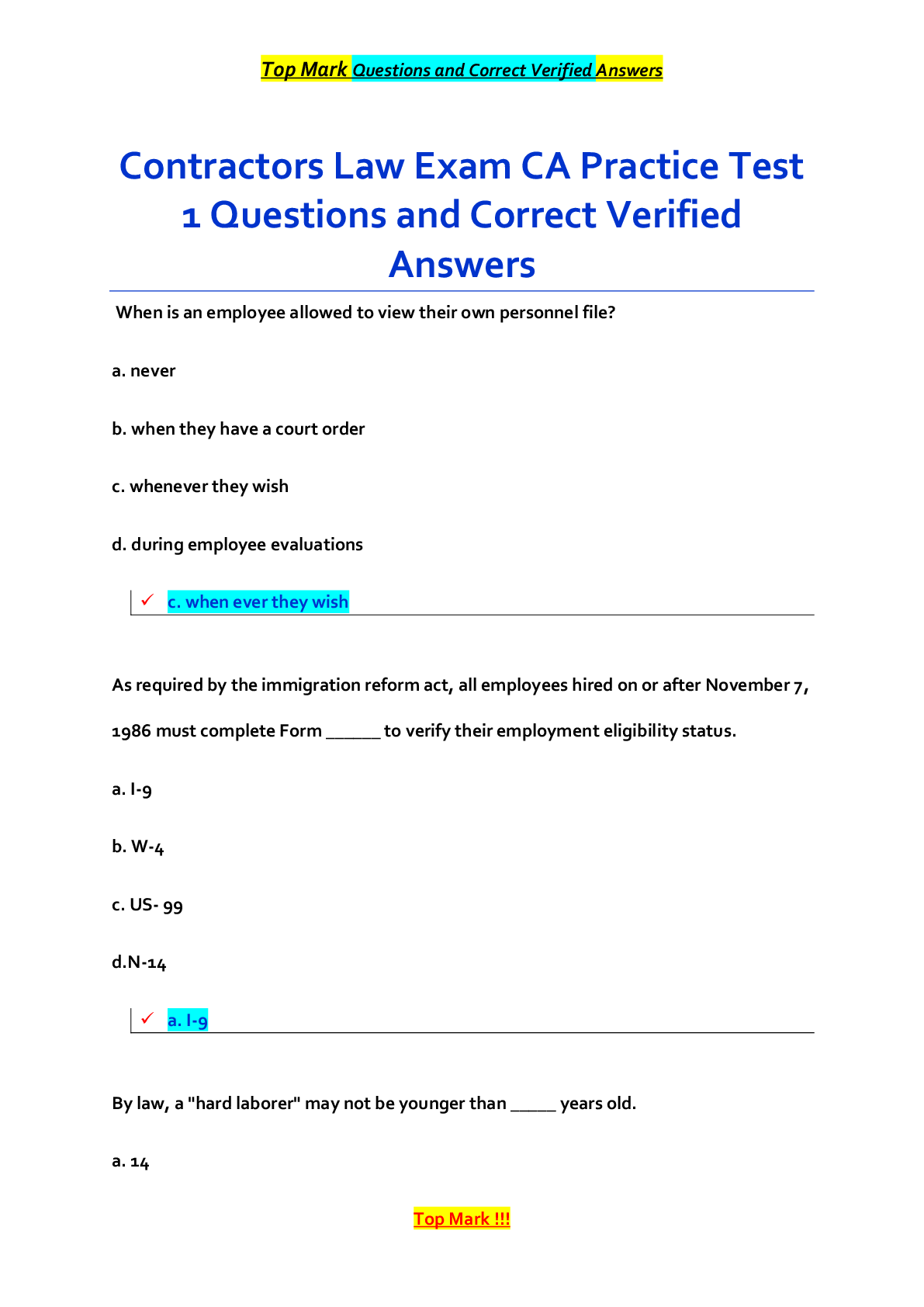
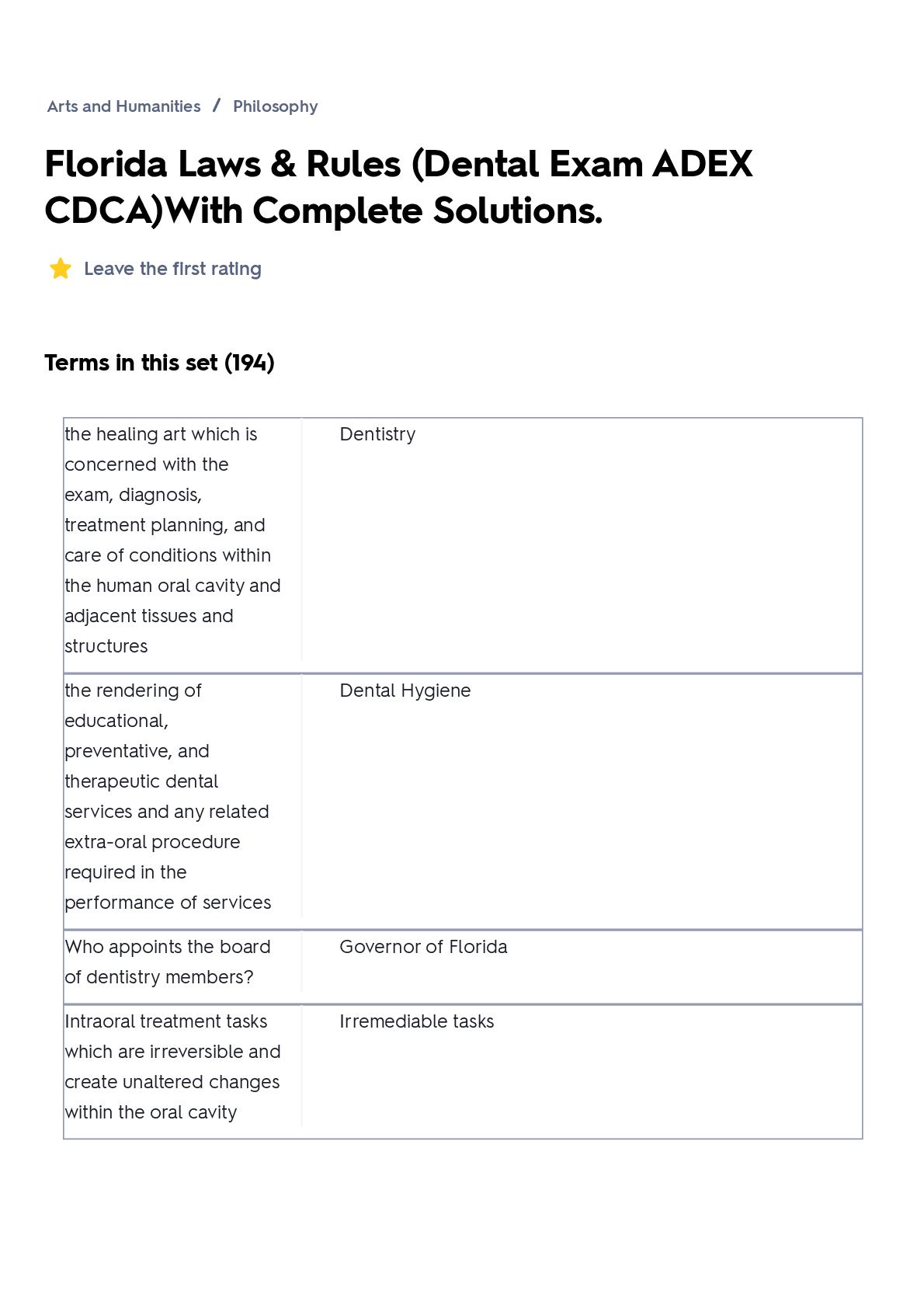
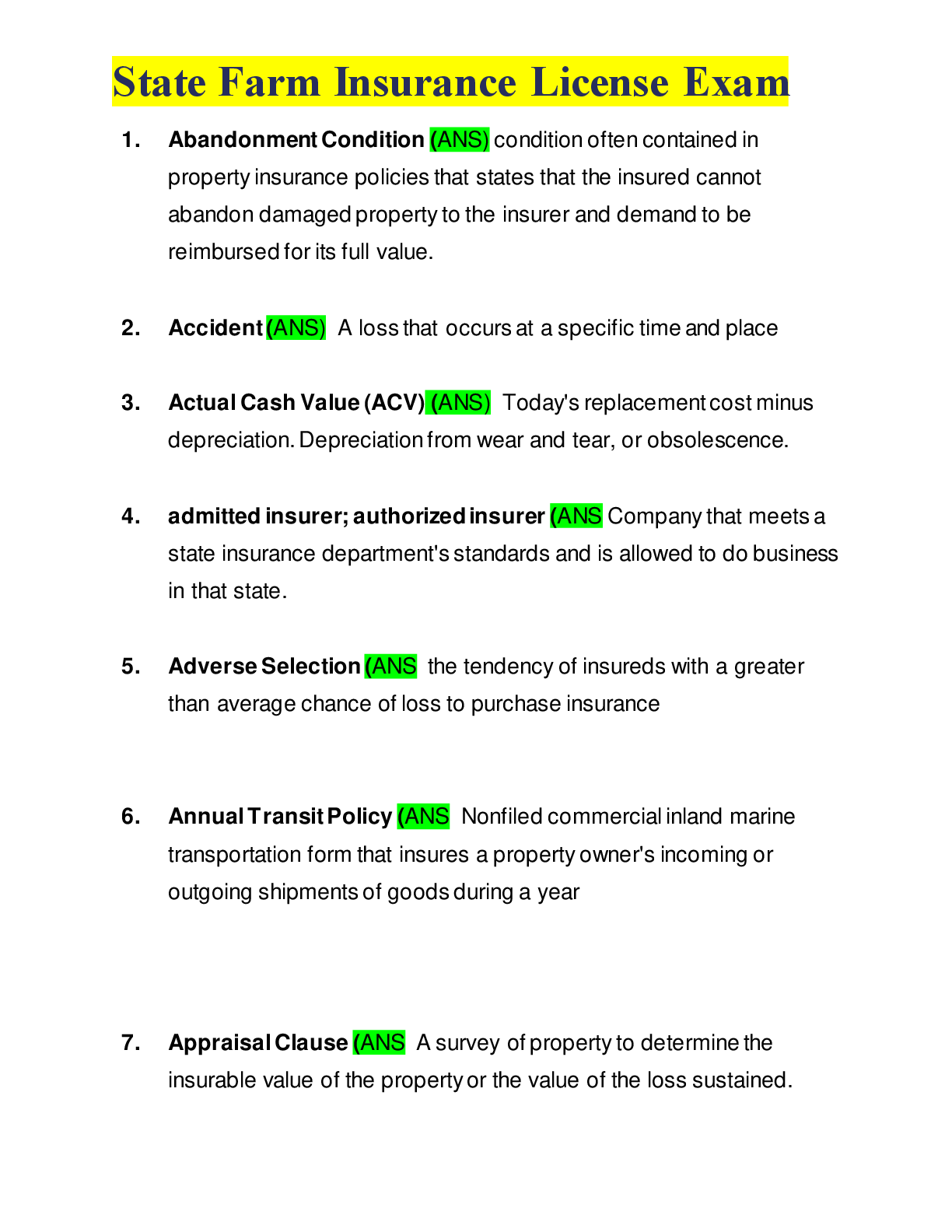
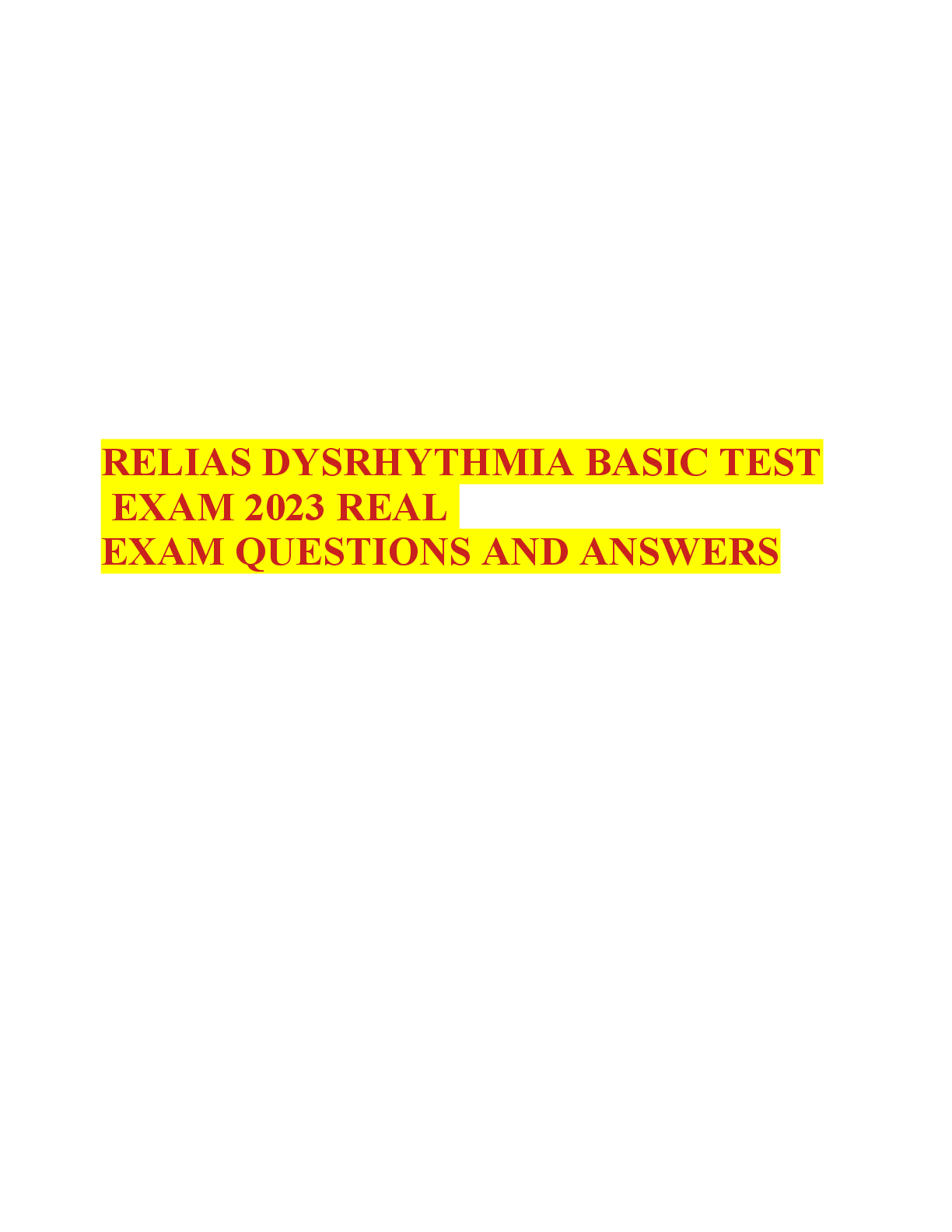
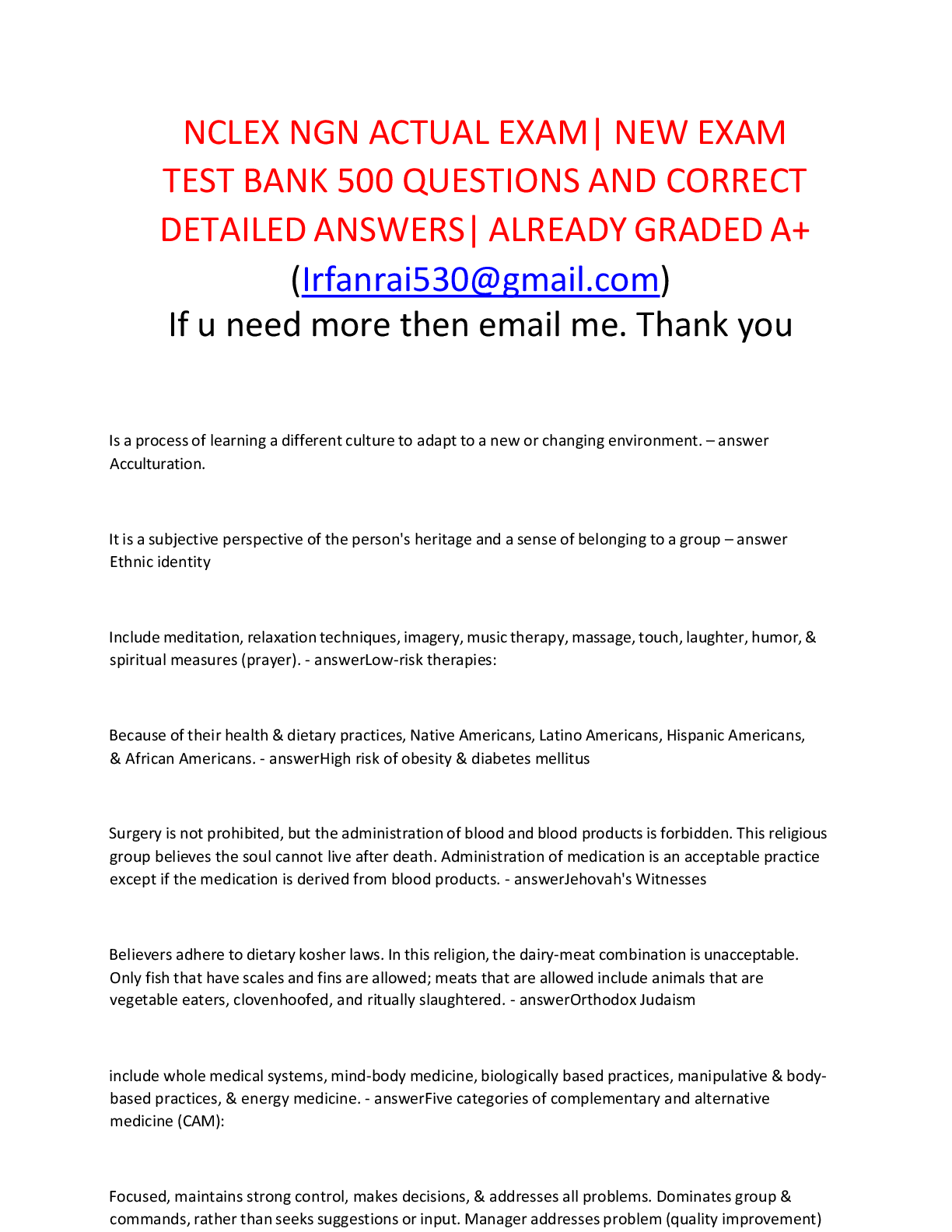
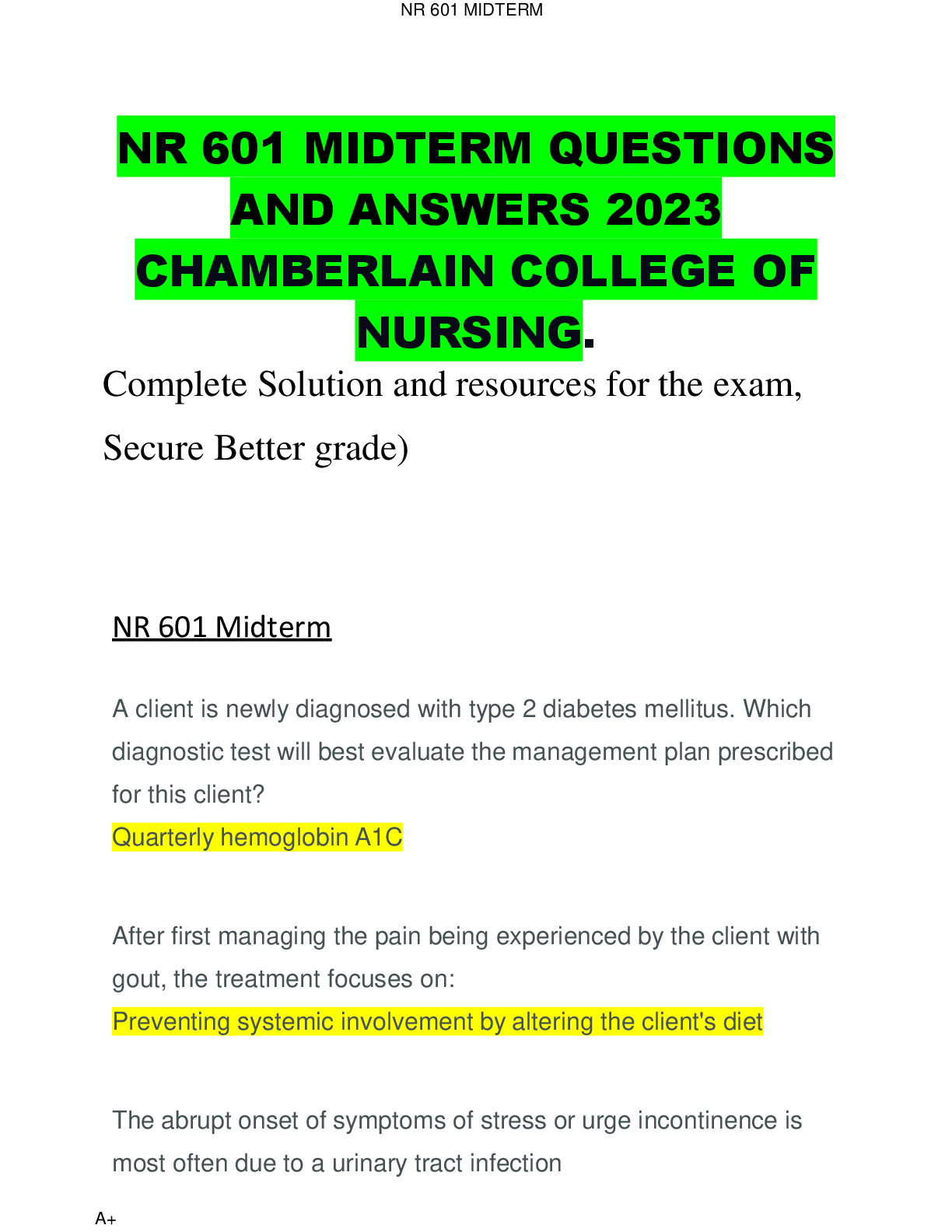
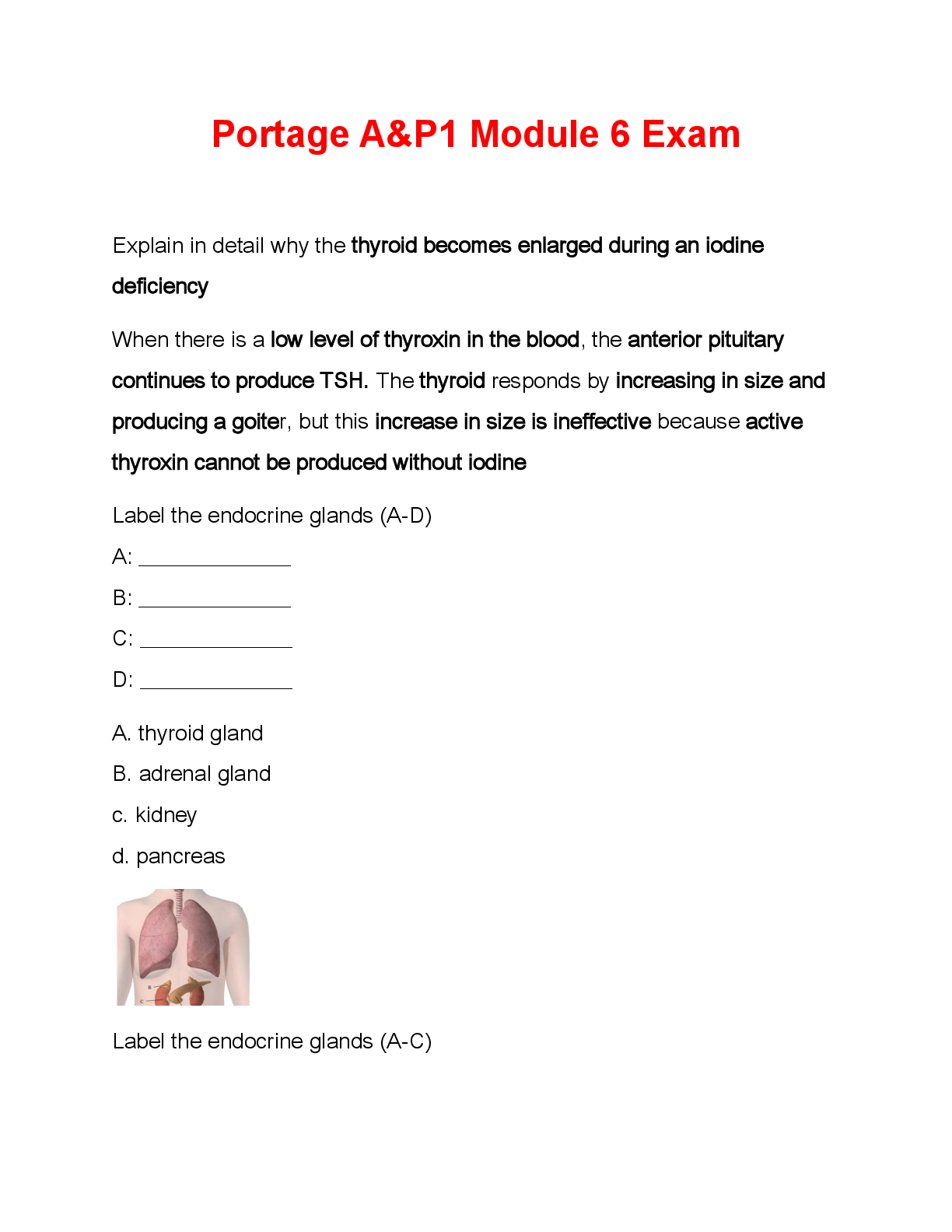



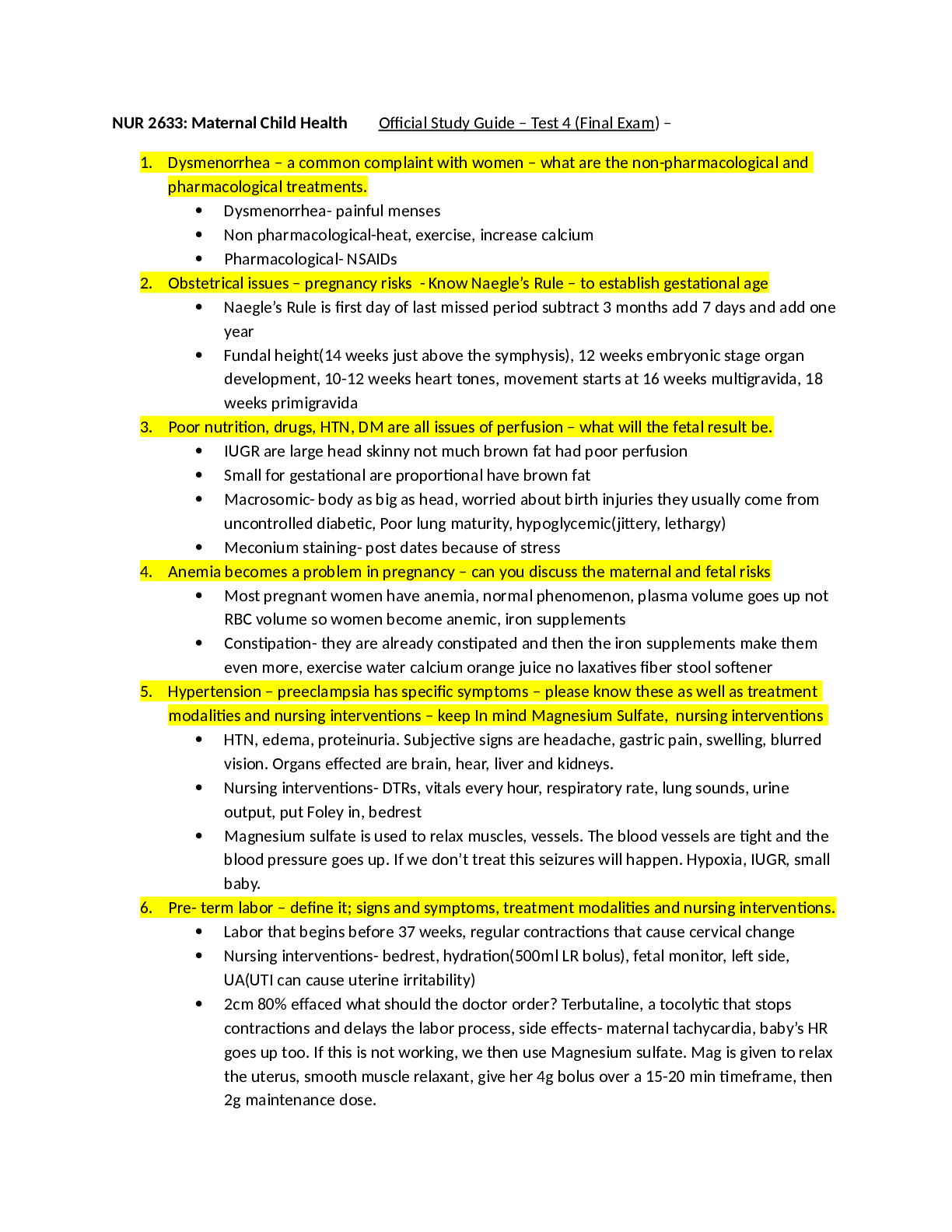
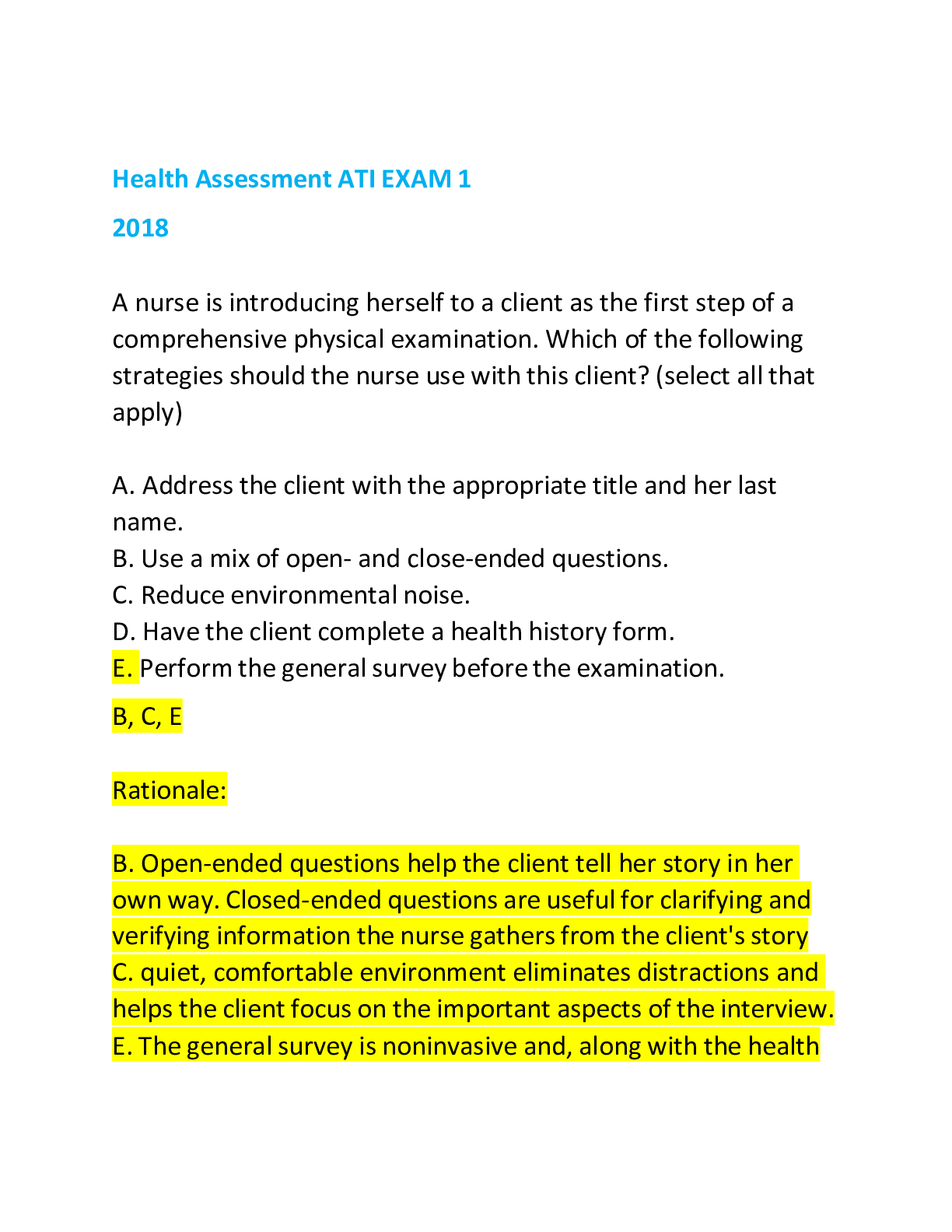
.png)
